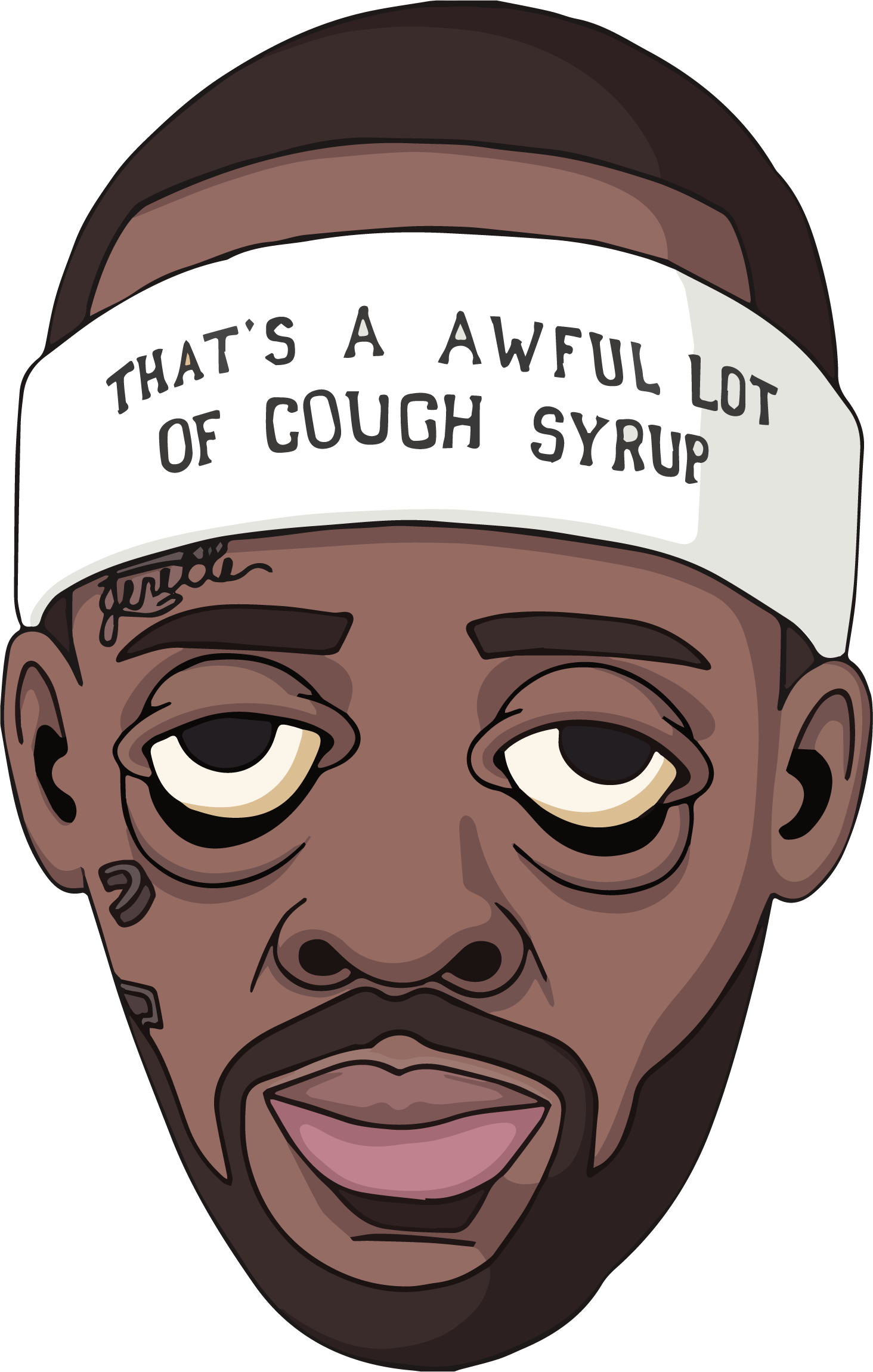In recent years, the phrase "that's a awful lot of cough syrup" has become more than just a casual remark; it has transformed into a cultural reference that highlights the effects of misuse and overconsumption of medications. This article delves into the reasons behind this phrase, its implications on health, and the social contexts that make cough syrup a topic of discussion. As we explore the intricacies of cough syrup consumption, we aim to shed light on what can happen when individuals take too much of a substance that is often seen as harmless.
While cough syrup is primarily intended to alleviate coughs and provide relief during cold and flu seasons, overconsumption can lead to various health issues. The active ingredients in many cough syrups, such as dextromethorphan (DXM), can have psychoactive effects when taken in large quantities. This creates a dangerous scenario where individuals, especially adolescents, may engage in misuse for recreational purposes. Thus, it's crucial to understand the risks associated with such behavior and to educate ourselves on the responsible use of medications.
Furthermore, the phrase "that's a awful lot of cough syrup" serves as a reminder of the delicate balance between medical use and potential abuse. In a society where accessibility to over-the-counter medication is relatively easy, it is vital to remain aware of the consequences of our choices. In the sections that follow, we will explore the origins and composition of cough syrup, the reasons behind its misuse, and the broader implications for health and society.
What Are the Ingredients in Cough Syrup?
Cough syrups typically contain a combination of active ingredients designed to address various symptoms. The most common ingredients include:
- Dextromethorphan (DXM): A cough suppressant that works on the brain's signals to reduce the urge to cough.
- Guaifenesin: An expectorant that helps loosen mucus in the airways, making it easier to cough up.
- Antihistamines: Often included to relieve allergy symptoms, which can also contribute to coughing.
- Codeine: A narcotic cough suppressant found in some prescription cough syrups, which can be addictive.
Why Do People Misuse Cough Syrup?
Understanding the reasons behind cough syrup misuse is essential in addressing this growing concern. Some of the common motivations include:
- Recreational Use: Some individuals misuse DXM for its psychoactive effects, seeking a euphoric high.
- Peer Pressure: Adolescents may feel compelled to experiment with substances to fit in with peers.
- Accessibility: Cough syrup is readily available over-the-counter, making it easy to obtain.
- Misinformation: A lack of understanding about the risks associated with large doses can lead to misuse.
What Are the Risks of Overconsumption?
Taking "that's a awful lot of cough syrup" can have serious health consequences, including:
- Nausea and Vomiting: High doses can irritate the stomach and lead to gastrointestinal distress.
- Respiratory Depression: Excessive use, particularly of codeine-based syrups, can slow or stop breathing.
- Psychological Effects: Misuse can lead to hallucinations, paranoia, and other mental health issues.
- Dependency and Addiction: Regular misuse can result in a physical and psychological dependence on the substance.
Who Is Most at Risk?
While anyone can misuse cough syrup, certain demographics are more vulnerable:
- Teenagers: The desire to experiment and fit in can lead to misuse.
- Individuals with Access: People working in pharmacies or healthcare may be tempted to misuse excess stock.
- Those with Mental Health Issues: Individuals coping with anxiety, depression, or other mental health concerns may misuse cough syrup as a coping mechanism.
How Can We Prevent Cough Syrup Misuse?
Prevention requires a multifaceted approach, including:
- Education: Informing individuals about the risks associated with cough syrup misuse is crucial.
- Parental Guidance: Parents should communicate openly with their children about the dangers of drug misuse.
- Responsible Access: Limiting access to cough syrup and monitoring its usage can help prevent misuse.
- Community Programs: Local initiatives can raise awareness and provide resources for those at risk.
What Are the Signs of Cough Syrup Misuse?
Recognizing the signs of misuse can aid in early intervention. Some indicators may include:
- Changes in Behavior: Sudden mood swings, withdrawal from friends and family, or changes in academic performance.
- Physical Symptoms: Persistent cough, slurred speech, or unusual lethargy.
- Secretive Behavior: Hiding cough syrup or lying about its usage.
What Should You Do If You Suspect Misuse?
If you suspect someone is misusing cough syrup, it’s important to approach the situation with care:
- Talk Openly: Initiate a non-judgmental conversation with the individual.
- Seek Professional Help: Encourage them to speak with a healthcare professional or counselor.
- Educate Them: Provide information about the risks and consequences of misuse.
- Support Groups: Consider recommending support groups for individuals struggling with substance misuse.
Conclusion: Why "That's a Awful Lot of Cough Syrup" Matters
The phrase "that's a awful lot of cough syrup" encapsulates the serious implications of misuse and the need for vigilance in our approach to medication. By understanding the ingredients, recognizing risks, and promoting responsible usage, we can better protect ourselves and our loved ones from the dangers of overconsumption. As we continue to navigate the complexities of healthcare and substance use in society, it is imperative to maintain a focus on education, awareness, and prevention strategies. Together, we can work towards a healthier future where cough syrup is used responsibly, ensuring that it remains a helpful remedy rather than a dangerous substance.
Unveiling The Mysteries Of Zodiac Signs For November 27
Unveiling The Mystique Of Salish In The Doll
Unraveling The Passion Of Japanese High School Baseball


